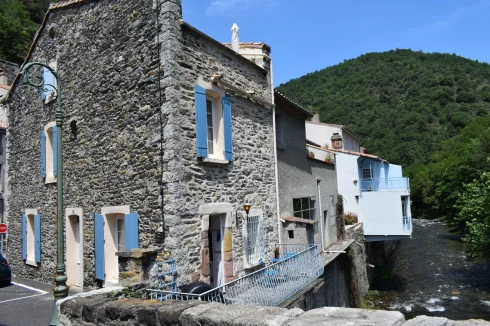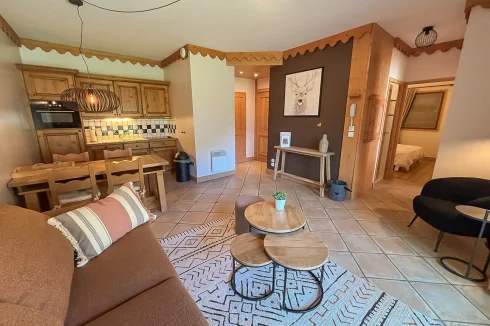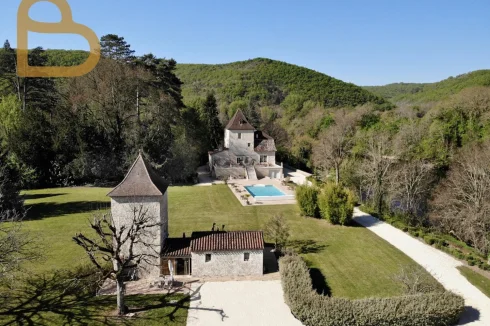Use of Chartered Surveyors in France
Tuesday 01 May 2012
The French are not accustomed to commissioning a property survey, but international buyers do have a choice, says John Marshall.
There are probably three major reasons for this French thinking.
i. Ten Year Building Guarantee
First, particularly for new property, they rely on the 10 year building guarantee, called la responsabilité décennale.
The limitation of this is that all risks are only covered for two years, with only structural problems covered for the full ten year period.
The ten year guarantee also formally covers major works to existing properties, but many smaller builders fail to take out the ten year insurance policy, with the result that enforcing the guarantee can often be difficult.
ii. Statutory Survey Reports
Secondly, the French State intervenes in a haphazard way to oblige the seller to arrange for a survey or report on certain aspects of the property, such as the presence of lead paint, asbestos, termites, electrics, natural risks, building energy efficiency.
These diagnostic techniques immobiliers give a false sense of security, for the statutory reports do not cover the structural stability of the walls, floors and roof or essential repairs required to ensure the life of the building.
iii. Latent Defects
Finally, there is also some protection in French law afforded to the buyer against latent (or 'hidden') defects (vices caches), which requires that sellers disclose all important aspects of the property to the buyer.
However, this protection is very limited to only those defects that are clearly apparent to the seller, who of course is not a building professional and so could not possibly be in a position to assess the condition of the property.
Moreover, as a matter of routine most notaires include a clause in the sales contract in which the seller gives no guarantee concerning latent defects. The clause is the subject of some legal debate, and can sometimes be overturned in the courts, but there is no guarantee that you would be successful.
Building Surveyors
So for these and no doubt other reasons there is no large French structural surveying profession in France in the same way there is in England, under the auspices of the Royal Institution of Chartered Surveyors (RICS).
The RICS is the largest organisation of surveyors in the world and there are nearly 1000 RICS members in France.
Unfortunately the designation ‘chartered building surveyor’ is not yet recognised in France.
The RICS has been lobbying the EU for some years for the designation to be accepted for architectural work, but to date has not been successful.
Nevertheless, RICS members are able to work in any country, provided they ensure that their professional indemnity insurance (PII) covers them for work overseas. It is possible for members to buy PII in the UK covering them to work overseas.
RICS France does not as yet have a PII that it recommends to members whose businesses are based in France. Research is currently being undertaken to find such a scheme.
In France PII is known as Responsibilté Civile Professionelle (RCP) and should not be confused with third party public liability insurance, called Responsibilité Civile Enterprises (RCE).
RCE does not provide cover for errors made by a surveyor in not reporting upon a defect or making an erroneous valuation; it merely provides cover against damage caused by the surveyor whilst he/she is at the property.
Only an RCP or PII insurance policy would cover the errors or omissions of a surveyor in the survey task.
Valuation or Building Surveyor?
Surveyors can offer ‘structural surveys’ or ‘condition reports’. In French this is known as 'Expertises en constat des désordres affectant un ouvrage'.
The RICS is divided into specialist ‘Professional Groups’ whose purpose is to support and inform members and to authorise the use of specialist designations.
It is only possible to hold one specialist designation. The Building Surveying professional group and the designation ‘Chartered Building Surveyor’ was created to fulfil the needs of surveyors who practised in all types of building construction, design and supervision.
However, the chartered specialist designation that a surveyor uses does not limit him/her to that specific work.
For example, someone who works primarily in the design of buildings and supervision of building contracts would choose Chartered Building Surveyor. They would also be competent in providing structural survey reports.
However, the vast majority of structural surveys and property condition reports in the UK are prepared by Chartered Valuation Surveyors, who use this designation to re-assure the banks and building societies for whom they do a great deal of work. They would also be trained in “building pathology” rendering them competent, experienced and insured to do structural surveys.
Which type of surveyor you need depends on the purposes and scale of the task.
When I am asked, “Is it essential to have a structural survey or condition report before I buy?” my reply is usually no, it is not essential.
HOWEVER, if you would do so in the UK then you should do so in France.
Indeed, given that you are buying in a foreign country there are clearly grounds for believing that you should be more cautious about what you take on than would be the case in your home country.
Do not be swayed that nobody bothers in France or that the statutory protection and surveys are enough.
You should also remember that if in the UK you are re-assured by thinking that the bank or building society’s mortgage valuation will bring any defects to your attention this simply does not happen in France. Because of the large deposit percentage required by French lenders and their reliance on desktop valuations, where the price per square metre is compared to the local average, a valuer is not normally instructed to even visit the property.
So if you wish to choose a Chartered Surveyor for your project or report, what should you do and what questions should you ask?
- Get their forename, surname and membership number, which you can verify by going to www.rics.org/gmd. If they have not requested privacy you will see their full membership and firm's details;
- Ask for a copy of their current PII or RCP insurance certificate. Check that they provide cover in France and for your requirements, such as a valuation or building condition report;
- Ask for their business registration number, which is known as the SIREN or SIRET;
- Ask about their education, experience, membership of other professional bodies and where relevant recommendations from previous/existing clients.
- Ask for a written fee quotation and their written terms of business.
JOHN MARSHALL CEnv FRICS CNEI MEWI
Thank you for showing an interest in our News section.
Our News section is no longer being published although our catalogue of articles remains in place.
If you found our News useful, please have a look at France Insider, our subscription based News service with in-depth analysis, or our authoritative Guides to France.
If you require advice and assistance with the purchase of French property and moving to France, then take a look at the France Insider Property Clinic.





